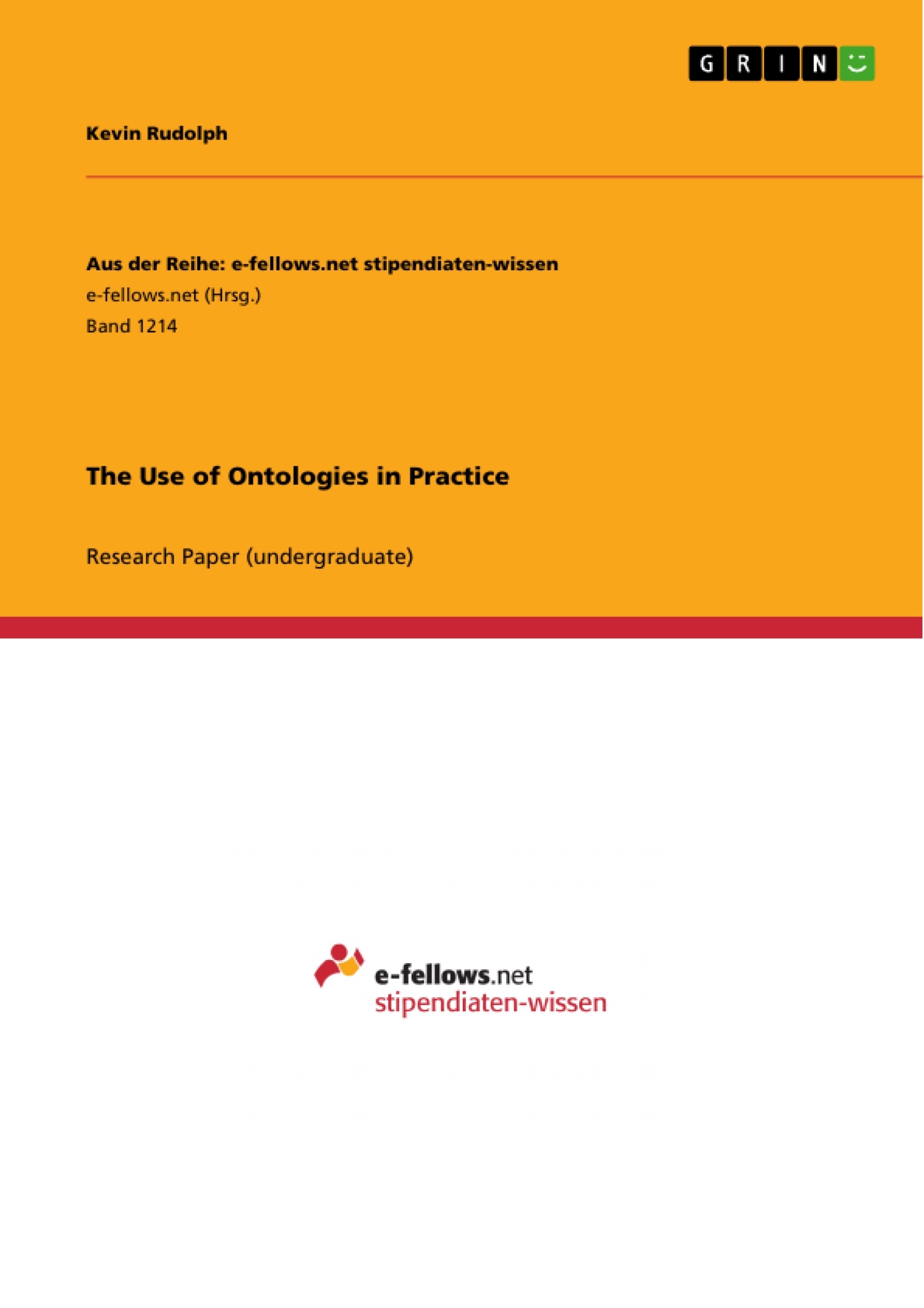Most of today’s information systems are highly heterogeneous and complex. High efforts and costs are put into interlinking systems to let systems communicate to each other and thus overcoming heterogeneity. The semantic web plays a significant role in the way it covers and links knowledge, making the web’s content understandable for machine-to-machine interactions. Hereby, ontologies serve as a technology to cover, infer and verify knowledge and making it available to accomplish a common understanding among participating agents.
This paper describes how ontologies are used in practice to support the overcoming of heterogeneity in information systems. After a revision of basic semantic technologies and standards like OWL and SPARQL we discuss a variety of methods and tools of the semantic web. In more detail, we investigate ontology editors, especially the Protégé tool as a well-established open-source application to create, edit and share ontologies. At last, we discover a variety of practical applications where ontologies are of high use.
Inhaltsverzeichnis (Table of Contents)
- 1. Introduction
- 2. Revision of Semantic Concepts...
- 2.1 Knowledge and Semantic Web
- 2.1.1 DIKW Pyramid...
- 2.1.3 Description Logics.
- 2.2 Ontologies, XML and RDF(S).
- 2.2.1 Ontologies.
- 2.2.2 XML
- 2.2.3 RDF(S)
- 2.3 OWL and SPARQL..
- 2.3.1 OWL.
- 2.3.2 SPARQL..
- 3. Ontology-based Information Integration…......
- 3.1 Methods.
- 3.1.1 Mappings..
- 3.1.2 Ontology Integration Architectures....
- 3.1.3 Reasoning, Inferring, Expert Systems ......
- 3.2 Tools.
- 3.2.1 Semantic Web Tools
- 3.2.2 Ontology Editors
- 4. Ontology Editor - Protégé.
- 4.1 General Background..
- 4.2 Historical Background.
- 4.3 Features
- 4.4 Internals.
- 4.5 Building Ontologies
- 4.6 Critical Appraisal
- 5. Practical Applications..
- 5.1 Industry Solutions....
- 5.2 Established Ontologies...
- 5.3 Biomedical Science and Protégé.
Zielsetzung und Themenschwerpunkte (Objectives and Key Themes)
The paper aims to explore the practical applications of ontologies in overcoming heterogeneity in information systems. It examines how ontologies contribute to the semantic web, which facilitates machine-to-machine communication and knowledge sharing.
- Semantic Web Technologies and Standards
- Ontology Development and Editing
- Information Integration using Ontologies
- The Protégé Ontology Editor
- Practical Applications of Ontologies
Zusammenfassung der Kapitel (Chapter Summaries)
- Chapter 1: Introduction Introduces the challenges of integrating heterogeneous information systems and the role of ontologies in addressing these challenges. It emphasizes the semantic web's potential for machine-understandable knowledge and introduces the Protégé tool for ontology development.
- Chapter 2: Revision of Semantic Concepts Provides an overview of foundational semantic web concepts, including the DIKW pyramid, description logics, and the relationships between ontologies, XML, and RDF(S). It explains the role of OWL and SPARQL in representing and querying knowledge within ontologies.
- Chapter 3: Ontology-based Information Integration Discusses methods and tools for integrating information systems using ontologies. This includes techniques like mappings, ontology integration architectures, and reasoning systems. It highlights the importance of ontology editors like Protégé.
- Chapter 4: Ontology Editor - Protégé Delves into the Protégé tool, covering its historical background, features, internal workings, and practical use in building ontologies. It also provides a critical appraisal of the tool's strengths and limitations.
- Chapter 5: Practical Applications Explores real-world applications of ontologies, including industry solutions, established ontologies, and the use of Protégé in biomedical science.
Schlüsselwörter (Keywords)
The main keywords and focus topics of the text include ontology editors, Protégé, semantic web technologies, heterogeneity, and information integration. These terms highlight the core concepts of the paper, which explores the use of ontologies to address the challenges of integrating diverse information systems.
Frequently Asked Questions
What is the role of ontologies in information systems?
Ontologies serve as a technology to cover, infer, and verify knowledge. They help overcome heterogeneity in complex systems by providing a common understanding among participating agents and machines.
What is the Protégé tool?
Protégé is a well-established open-source ontology editor. it allows users to create, edit, and share ontologies and is widely used in fields like biomedical science.
What are OWL and SPARQL?
OWL (Web Ontology Language) is a standard for representing rich and complex knowledge about things. SPARQL is a query language used to retrieve and manipulate data stored in Resource Description Framework (RDF) format.
How do ontologies support the Semantic Web?
Ontologies make web content understandable for machine-to-machine interactions. By linking knowledge and using description logics, they enable automated reasoning and better information integration.
In which practical fields are ontologies applied?
Ontologies are used in industrial solutions, expert systems, and extensively in biomedical science to manage complex terminologies and data relationships.
- Quote paper
- Kevin Rudolph (Author), 2015, The Use of Ontologies in Practice, Munich, GRIN Verlag, https://www.hausarbeiten.de/document/300018


